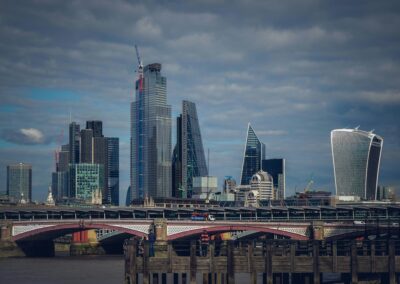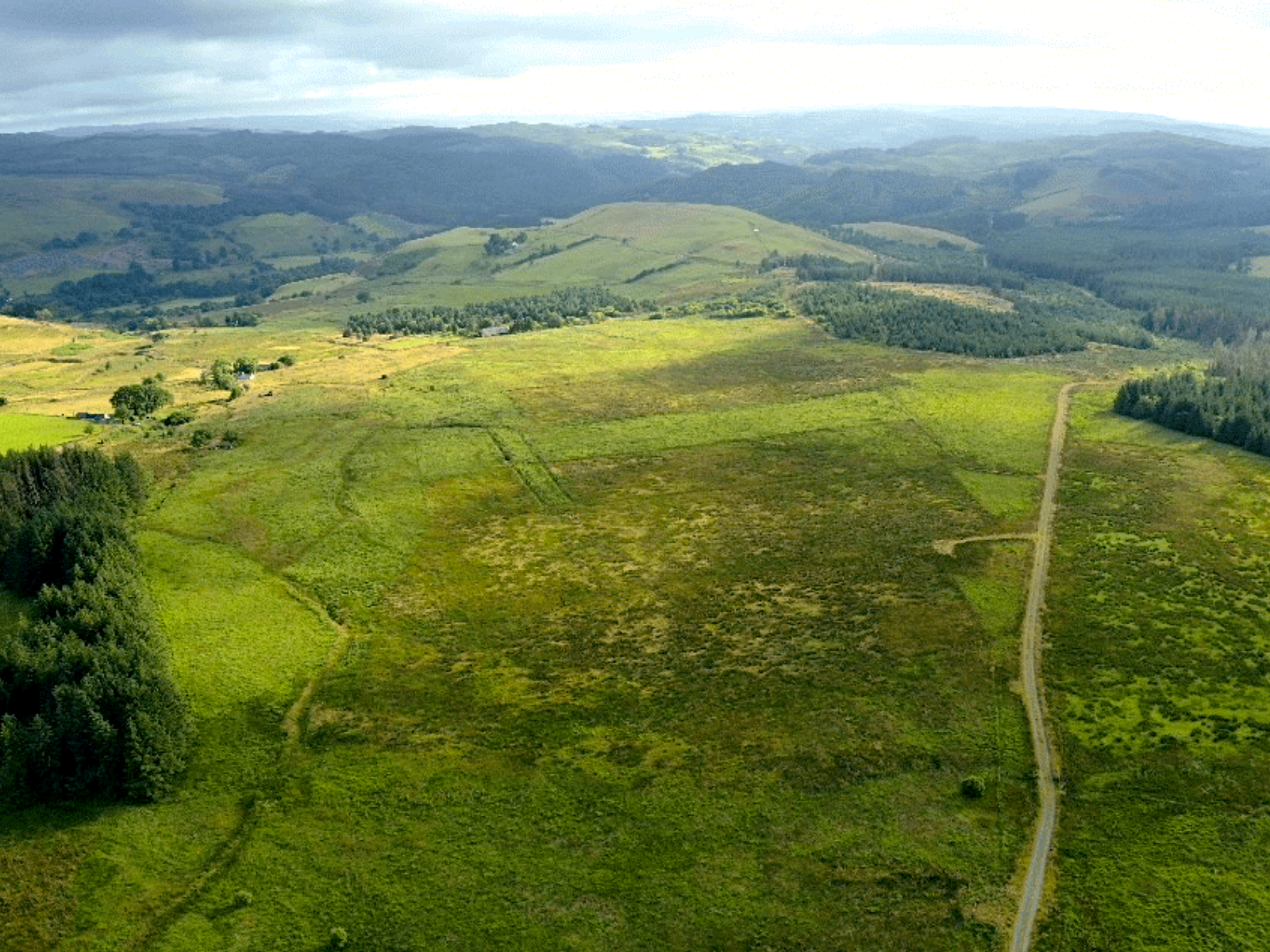the urgency of zero
In order to avoid disastrous environmental consequences, it is essential that we achieve the ambition of the Paris Agreement: to hold average global temperature increases to well below 2°C above pre-industrial levels, whilst pursuing efforts to limit the temperature increase to 1.5°C. To do this, we must reach net zero emissions by mid-century.
While the Paris Agreement sets a global objective, action towards this common goal is driven at the national level, with each party being responsible for setting and delivering their own policies to achieve it. While there may be different approaches to attaining net zero, it is important that these plans adhere to a common set of principles.
Speed is crucial – we need to combine long-term net zero commitments with immediate action and short-term interim targets. Every year of delay before initiating emission reductions reduces the time available to reach net zero emissions while keeping below 1.5 °C by approximately two years. This urgency necessitates rapid and drastic action.
“There are sound scientific and economic reasons to reduce emissions as much and as fast as possible” (Fankhauser et al, 2022)
Net zero strategies need to be implemented now – delivering mitigation benefits takes time. In addition, the efficacy of many strategies is time-sensitive. The contribution of Nature-based Solutions, for example, to limiting peak-warming will diminish as warming and other climate-driven risks compromise the restoration of ecosystems and long-term carbon storage.
Net zero commitments should not be considered as replacements to urgent and comprehensive emissions cuts – we must tackle all emissions, including those from the most difficult sectors (e.g. food, agriculture, aviation and mining), to effectively combat climate change. Decarbonising industries and investing in clean energy (renewable, nuclear and hydrogen sources) is central to most emission reduction strategies and, together with carbon capture and storage technologies, could deliver over 70% of the emissions reductions needed to achieve net zero by 2050. Emissions cuts are also expected to emerge through behavioural (e.g. diet and transport) changes on the consumer level, and are predicted to deliver 11% of the emissions reductions needed to achieve net zero by 2050.
Although less established than incumbent technologies and infrastructures, zero-carbon solutions are present in most sectors. Despite often being costly, their long-term uptake is vital in achieving net zero. Front-loading emission reductions is essential in terms of addressing the immediate challenges of climate change. By reducing emissions early on, we can slow rates of warming and the severity of its consequences. This also preserves optionality, allowing for the adjustment of carbon budgets and emission reduction targets as new findings emerge.
PRIORITY AREAS
CLIMATE LEGISLATION AND NET ZERO LAW
The law is a powerful tool to tackle climate change. Legal architecture can help enforce climate commitments and obligations, create frameworks for policy action and provide incentives for crucial infrastructure investment. Research has found that each new climate law reduces annual CO2 emissions per unit of GDP by 0.78% nationally in the short term (during the first three years) and by 1.79% in the long term (beyond three years) (Eskander, S.M.S.U. and Fankhauser, S., 2020).
While net zero targets continue to proliferate, a net-zero-compliant legal architecture provides the institutional backdrop for their effective and credible implementation. ONZ research is evaluating the adoption and credible implementation of net zero commitments and designing legal frameworks to support the transition to net zero.
NET ZERO FOR THE FOSSIL FUEL SECTOR
Increasing numbers of companies are producing net zero targets and strategies, including challenging sectors such as fossil fuel production and mining. Evaluating these strategies, and designing objective metrics of progress towards achieving them, remains work in progress.
ONZ is leading a programme of research to define what is required from the fossil fuel sector in order to be aligned to the global goal of net zero by mid-century. A framework for evaluating net zero plans of the highest-carbon-risk companies will be developed.
NET ZERO FOOD SYSTEMS
37% of the world’s non-ice covered land is dedicated to food production (Food and Agriculture Organization). Food demand is projected to increase globally, and agricultural land expansion is projected to expand by an area nearly twice the size of India by 2050 (Searchinger et al., 2019).
Current agricultural emissions are around 12 GtCO2 per year. They are projected to rise to 15 GtCO2 per year by 2050, but to reduce in line with the Paris Agreement temperature goals, that number needs to reduce to 4 GtCO2 per year (Searchinger et al., 2019). This presents an enormous challenge: societies need to feed growing populations, while reducing agricultural emissions and halting deforestation.
ONZ research is helping to develop mitigation strategies for the UK land sector. One project is focussing on the application of novel emissions and land-use accounting metrics in the development of net-zero pathways to incentivise decisions that help feed the world without destroying it.
NET ZERO REGULATION
Regulation around net zero is an influential and practical tool. It can be employed to level the playing field, transform pre-existing voluntary commitments into rules for the economy, and ultimately help reach the emission targets set by the Paris Agreement.
Oxford Net Zero contributes to both the Net Zero Tracker and the Climate Policy Monitor, which track net-zero regulations and policies adopted by states and non-state actors around the world and assess how they align with climate goals.
Renewable Energy Transition
The renewable energy transition is not just an environmental imperative. It also offers a unique opportunity to advance green prosperity and genuinely sustainable development (Frankhauser et al, 2023).
Rolling out renewable energy can boost energy access, make modern economies cleaner and more efficient, develop new areas of comparative advantage, unleash a virtuous cycle of innovation, investment and growth, and provide an investment stimulus to slow-growing economies (Frankhauser et al, 2023).
The benefits are particularly pronounced in developing countries, where universal access to energy is essential for a just transition. Oxford Net Zero research is helping to form practical proposals to achieve renewable energy projects at scale and create the next generation of clean energy champions.
Research summary
Governance, accountability and reporting mechanisms surrounding net zero targets are currently inadequate, with long-term ambitions often lacking the backing of near-term action. Many entities have failed to set out the plans required to achieve their targets, and often replace cutting their own emissions with investments into carbon offsets – some being of questionable environmental and social integrity.
Through analysing the scope for rapid and comprehensive emissions reductions and identifying possible technological, governance and public policy solutions, our research aims to tackle these challenges and establish clear guardrails to ensure the robustness of net zero as a framework for climate action.
Recent publications
OTHER RESEARCH THEMES
News and Events

Oxford Net Zero reflects on COP30
Members of Oxford Net Zero travelled to Belém, Brazil last month to contribute their expertise at the COP30 summit. This year marked 30 years of COP and 10 years since the Paris Agreement. After so many rounds of negotiations, COP30 was to ... Read more

SBTi Releases Second Draft of Corporate Net Zero Standard: Key Updates for Professional Services
The Science Based Targets Initiative (SBTi) has released the second draft of its updated Corporate Net-Zero Standard, marking the first major revision in more than four years and introducing significant new guidance for professional service ... Read more

New plan aims to make public procurement a force for climate action
Today at COP30 in Belém, the Government of Brazil announced an ambitious plan to drive action on climate change using the power of public procurement. The Belém Declaration on Sustainable Public Procurement establishes concrete measures to move ... Read more

Oxford Net Zero launches new Serviced Emissions Hub to drive accountability in professional services
By Siddharth Shekhar Yadav, Alexis McGivern and Clarissa Salmon. In mid-October, Oxford Net Zero officially launched the Serviced Emissions Hub – a new cross-sector platform bringing together leaders from law, consulting and ... Read more

Oxford Net Zero and VietJet announce Net Zero Aviation project
Last week the University of Oxford signed major agreements with Vietnam on climate innovation, healthcare and access to higher education. At the ceremony, Professor Myles Allen of Oxford Net Zero and Madame Nguyen Thi Phuong Thao, Founder ... Read more

Oxford Net Zero and Futerra launch new “Spheres of Influence” white paper at Climate Week NYC
Yesterday at Climate Week NYC, Oxford Net Zero and the sustainability agency Futerra launched a white paper on the Spheres of Influence – a new framework for incentivising corporate climate action. The framework provides a way to understand ... Read more



